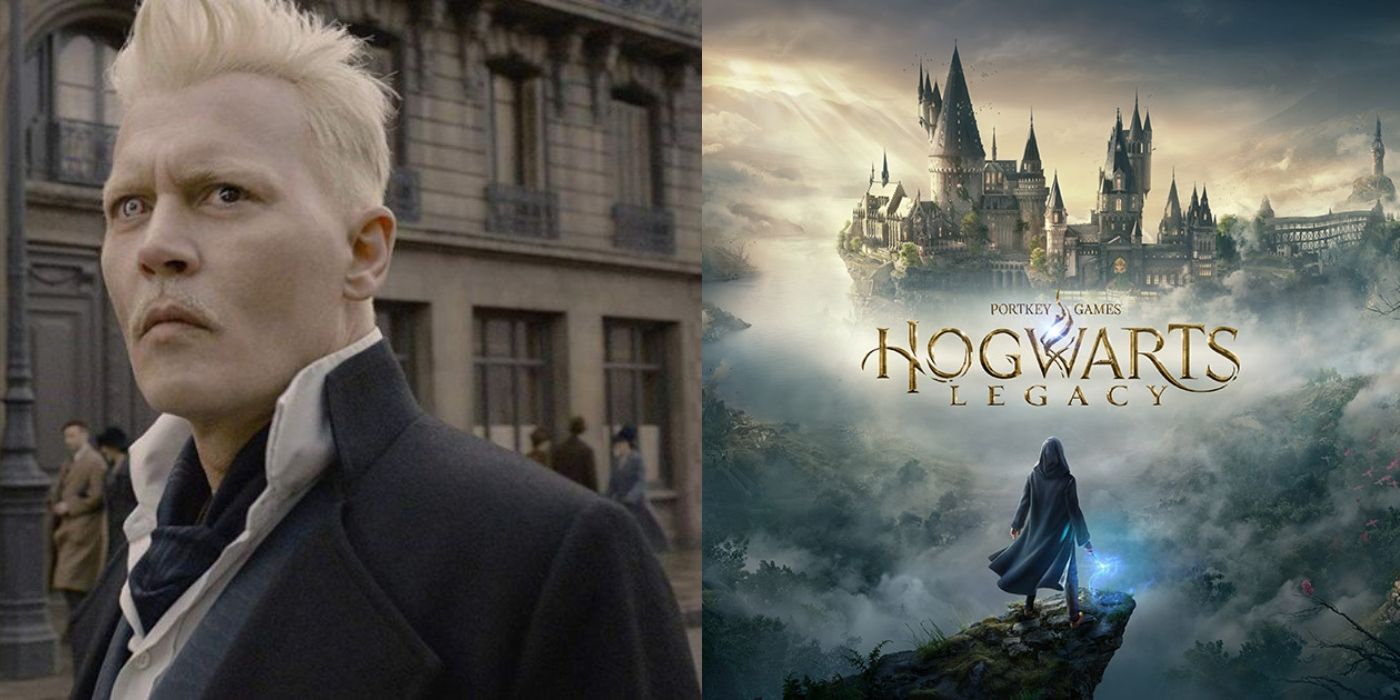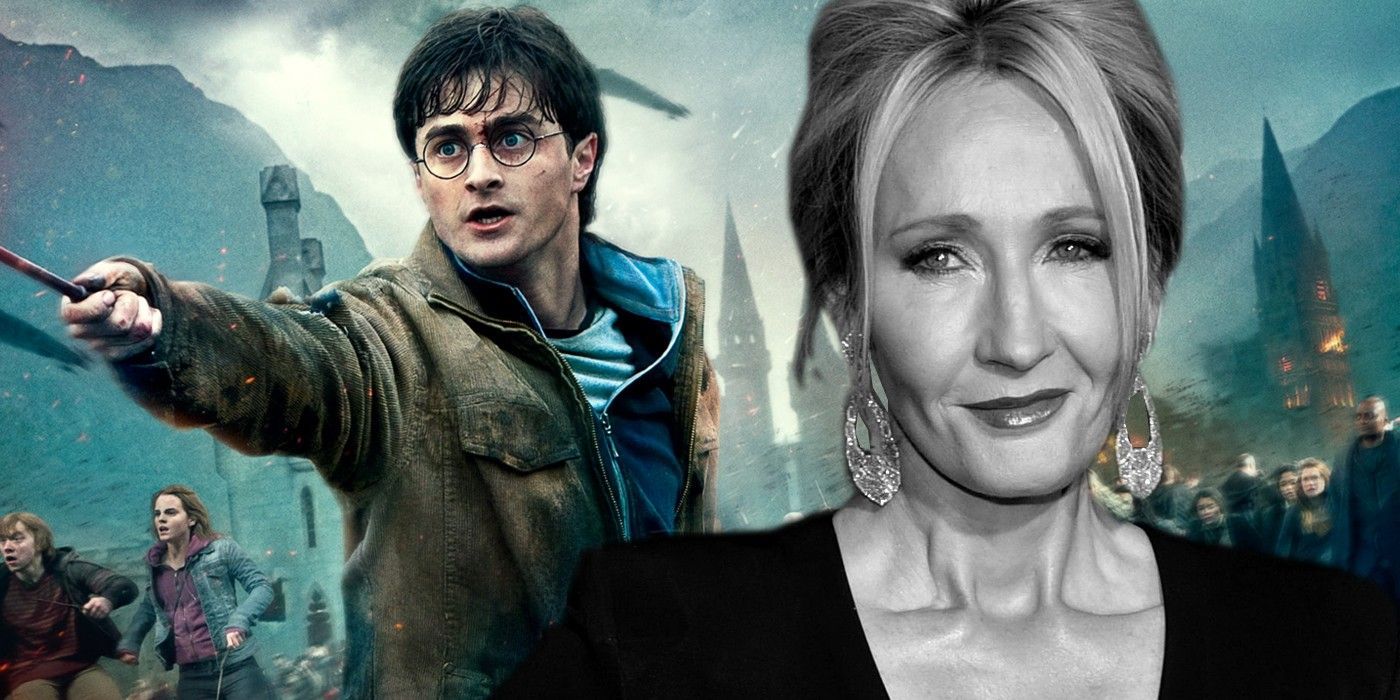
If Harry Potter was "The Boy Who Lived" because he continually dodged death at the hands of Lord Voldemort, then the Harry Potter franchise has become "The Franchise That Lived" because it keeps getting resurrected again and again. From the Fantastic Beasts movies, to the seemingly yearly re-release of the books with new covers or designs, to The Cursed Child stage production and book, to the multiple video game releases, the Harry Potter series just keeps churning out content.
It's not necessarily unusual for something as popular as this series to become the kind of franchise that is constantly making new things and over-saturating the market, but it begs the question of whether or not the series is being championed far past its prime. It's not that the franchise is all bad (at least, the original series isn't), but with the controversy around J.K. Rowling and the failure of the latest Fantastic Beasts movie, The Crimes of Grindelwald, it might be time to leave the Wizarding World in the past.
RELATED: Why 2022 is Going to Be Huge for Harry Potter Fans
For clarification, it's not that the Harry Potter series needs to be left behind because it's terrible, but if the franchise carries on with constantly releasing content, people will get burned out very quickly, and start to realize that the franchise is past its prime. Wouldn't it be better to leave it as is, and as a piece of nostalgia and something that brings fans a lot of joy, rather than squeeze every last drop of magic out of the property until it's a shell of what it once was?

Some fans are already beginning to lose the passion they once had for the franchise, which started when the author herself become tangled in controversy. Recently, Rowling has made many transphobic comments online, which has led to a lot of fans, including a number of actors who worked on the Harry Potter films, voicing their opposition to her views. Many fans feel that by supporting new Harry Potter projects, such as the upcoming Hogwarts Legacy or the Fantastic Beasts movies, they are supporting J.K. Rowling, and so many have chosen not to do so. This could certainly have an effect on how successful these new properties are, and whether expansion of the Wizarding World will be able to continue at all.
There's also the issue of the Fantastic Beasts films. The first one did well with both critics and fans, but the sequel, The Crimes of Grindelwald, was a box office and critical failure, and was heavily criticized by fans. There is a third film in production, but the general feeling towards the second entry in the series might be enough to keep people from seeing the third one when it eventually releases. The controversy around the recasting of Johnny Depp in the role of Grindelwald also isn't going to help matters very much.
With the Fantastic Beasts movies, the franchise had a great idea for the first movie that expanded the world outside of Harry Potter's story, and it could have just been a standalone and been left at that. The series could also have been improved by focusing on Newt Scamander, his beasts, and the other characters we met in the first film, rather than focusing on the Dumbledore-Grindelwald storyline that it seems fans and the general public didn't really care about. This is emblematic of the franchise as a whole, and its strange need to continue the world on past a natural stopping point and engage in stories that the fans aren't interested in.
Another problem is that some of the post-Harry Potter Wizarding World entries feel badly written, and as though a much lower level of care went into each of them. The Crimes of Grindelwald is a prime example of this, but fans also criticized The Cursed Child (despite the acclaim it received for its onstage production) for feeling like strange, out of character Harry Potter fan-fiction rather than a piece of writing that was approved by the author herself. Despite their problems with J.K. Rowling as a person, most fans would agree that the original Harry Potter book series is quite well written, which is the reason it appealed to them so much in the first place. A lot of the entries to the franchise since that point have just felt like a dip in quality, and some feel much more like money-grabs than an actual story that needed to be told.
In general, it might just be a problem of over-saturation. People will get tired of something if they are exposed to too much of it too often. It seems like the people in charge of Harry Potter content are dead set on running the franchise into the ground and releasing mediocre content just to make money and ruining that magic that made the Harry Potter series so special in the first place.
Fans still cherish the books and the memories they have of reading it and of being involved in the fandom, and it might be the best course of action to leave it at that. The franchise doesn't need to die entirely, but can be kept afloat by the passion of fans and their nostalgia for the series, rather than a never-ending slew of movies and video games about the Wizarding World. The best way for the Harry Potter series to continue its legacy might be to just quit while they're ahead and let the books speak for themselves.
MORE: A 'Harry Potter' TV Show May Be In The Works For HBO Max

